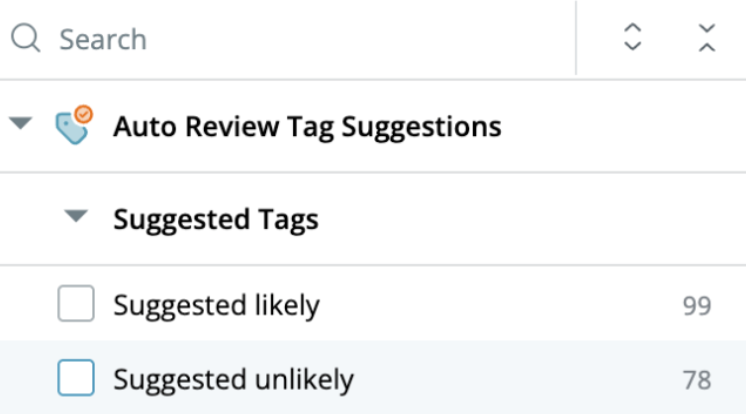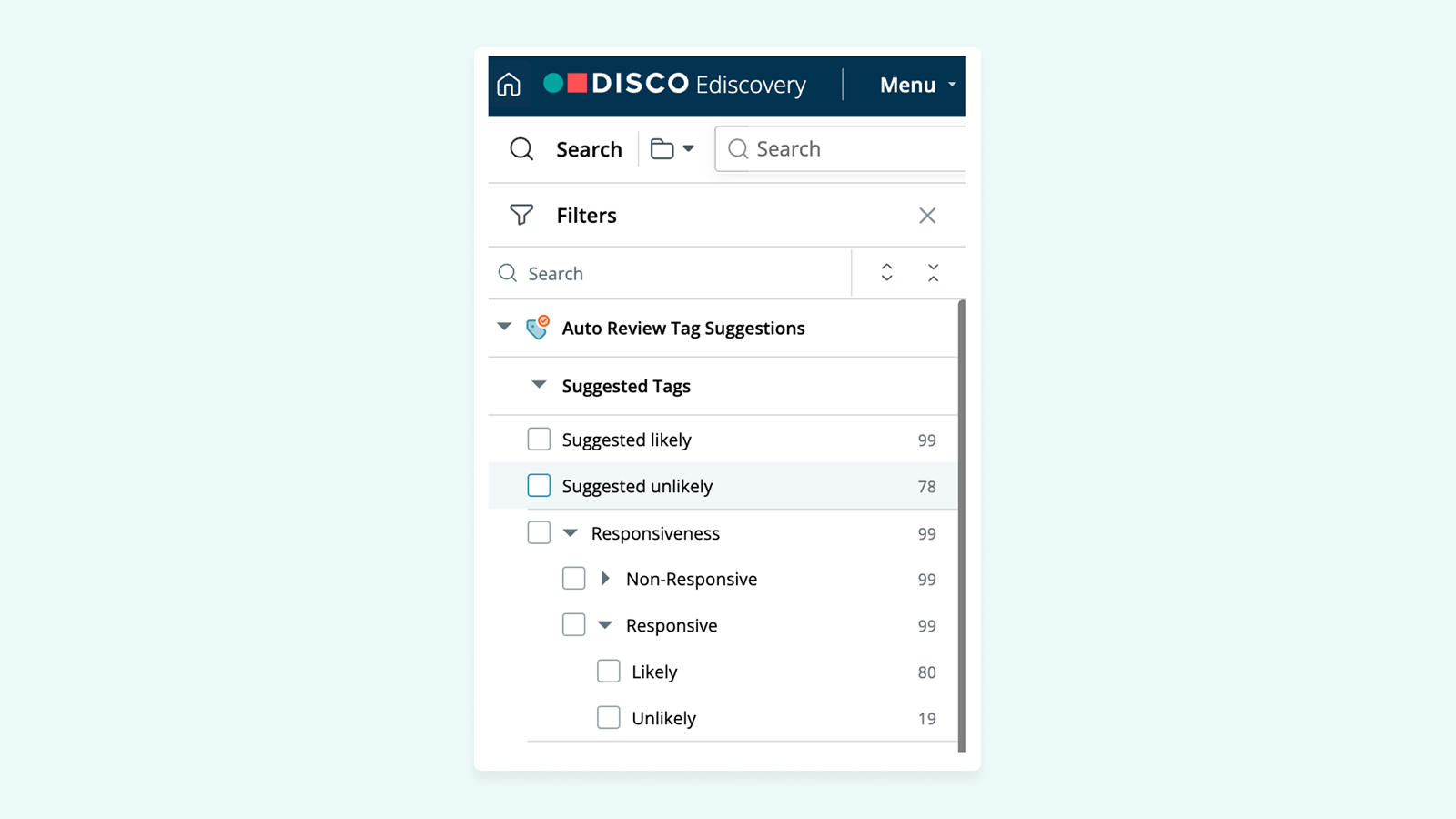⚡️ 1-Minute DISCO Download
A team member recently said to me, “You are the world’s biggest cheerleader – but how are you your own biggest cheerleader?” This made me start to think about how I have forgotten to prioritize my own self care.
As VP of the incredible Professional Services team at DISCO, I often put others before myself, especially my team. I lead with empathy and compassion, and accept how people need to show up. However, I had been neglecting to show up for myself – and it’s critical for leaders to model the right behavior for their teams, including setting boundaries and expectations and prioritizing mental health.
Below, I’ll share stats about mental health in the legal profession and in legal technology – statistics that may be alarming, but certainly not surprising to anyone working in these fields – as well as integral strategies for taking care of yourself so you can continue to deliver the success that’s so critical to your clients, your team, and yourself.
My background in law – and burnout
I’ve been in the legal profession for 20 years. I got my start as a litigation paralegal at an Am Law 50 firm during the beginning of utilizing legal technology in discovery work. During this time, I became the only paralegal member of the firm’s ediscovery practice group, and I managed all of their large-scale antitrust and litigation discovery work.
I also was an active member of the appellate brief cite-checking team and three years in, started to attend law school at night. I took on a lot of trial work as well – basically, I said yes to every opportunity that came my way, believing that this was the best way to learn, but not understanding the toll it was having on me.
After law school, I started working as a project manager at a legal service provider and within a month of starting, was leading the residential mortgage-backed securities discovery work for one of the largest banks. It was during this project that I first experienced burnout and saw the effects that it had on my results (as a type-A people pleaser, I never want to let anyone down) and ability to be successful.
It was also, critically, during this project that I learned how to delegate and ask others for help – we can’t do it all on our own – and this actually helped me start down the path of leadership.
Mental health and self-care are topics near and dear to my heart – I have struggled with anxiety and depression for most of my life and chose a degree in psychology to learn more. I am not a professional expert. But, like many of you in the legal and legal tech spaces, I’ve been there. This post reflects my own personal experiences and what I’ve learned from them. I hope they can help you.
Mental health challenges in law and in legal technology
The legal profession, including legal technology, faces significant mental health challenges. Recent studies from the American Bar Association, Bloomberg Law, ALM, and others, highlight the following:
- High levels of stress and anxiety: A 2024 ABA survey found that 83% of lawyers report feeling stressed regularly, and 71% experience anxiety. Additionally, 56% reported disrupted sleep, affecting their ability to perform at desired levels.
- Depression and substance abuse: ALM and Law.com found that approximately 28% of lawyers have experienced depression, and 25% have increased their use of drugs and/or alcohol due to their work environment. (That study is behind a paywalll; this LinkedIn post breaks down the findings.)
- Work environment impact: From the same ALM/Law.com study, nearly 80% of lawyers believe that their work environment contributes to their mental health issues. Factors such as long hours, high-pressure situations, and the inability to disconnect are significant contributors.
- Burnout and job dissatisfaction: From the same: Over 70% of lawyer respondents in 2024 reported feeling exhausted, and 30% expressed that they hate their job. About 60% have lost motivation and have an increasingly negative outlook.
These statistics underscore the urgent need for comprehensive mental health support within the legal profession, including those in legal technology roles. Addressing these issues is crucial for the well-being of legal professionals and the overall health of the legal industry.
The benefits of self-care for legal professionals
Self-care is not a luxury, but a fundamental aspect of maintaining good mental health. Think of it as regularly refueling your car: without it, you'll eventually run out of gas.
Similarly, without consistent self-care, your mental and emotional reserves can become depleted, leading to various challenges. Here's why it's so vital.
Self-care tells your body and mind you’re safe
Engaging in self-care activities signals to your body and mind that it's safe to relax. This can lower your levels of stress hormones like cortisol, which has far-ranging effects beyond simply helping you feel calmer and more at ease – chronically high levels of cortisol can contribute to heart disease, insomnia, memory issues, high blood pressure, and a host of other issues.
Activities like deep breathing, meditation, or simply taking a break can make a big difference – not just in your day, but in your life.
Self-care increases productivity
It might seem counterintuitive, but taking breaks and engaging in self-care can actually enhance your productivity. When you're rested and mentally clear, you can focus better and accomplish tasks more efficiently. Burnout, which can severely hinder productivity, is also less likely when self-care is a priority.
Self-care improves mood and emotional well-being
Self-care provides opportunities to experience positive emotions and engage in activities you enjoy. Whether it's pursuing a hobby, spending time in nature, or connecting with loved ones, these moments can boost your mood and increase feelings of happiness and contentment.
Self-care enhances self-awareness
Taking time for yourself allows for introspection and reflection, which allows you to become more attuned to your own needs, feelings, and triggers. This self-awareness is crucial for recognizing when you're feeling overwhelmed and taking proactive steps to address it.
Self-care boosts resilience
Regular self-care strengthens your ability to cope with life's inevitable challenges and bounce back from setbacks. When you feel cared for and have replenished your resources, you're better equipped to handle stress and adversity.
Self-care improves physical health
The mind and body are interconnected. When you prioritize self-care that includes physical activity, healthy eating, and sufficient sleep, you're not only benefiting your mental health but also your physical well-being. This can lead to increased energy levels, a stronger immune system, and a reduced risk of certain physical health issues.
Self-care strengthens relationships
When you feel good within yourself, you have more emotional capacity to invest in your relationships. Self-care helps prevent burnout, allowing you to be more present, patient, and engaged with the people you care about.
In essence, self-care is about intentionally taking actions to support your overall well-being. It's about recognizing that your needs matter and making time to nurture yourself. Just like you wouldn't neglect your physical health, prioritizing self-care is essential for a healthy and balanced mental state.
Strategies for maintaining your mental health in the legal profession
Taking care of your mental health doesn’t have to be expensive or complicated. Here are some simple strategies to keep yourself mentally well.
1. Set boundaries
- Limit after-hours work and emails.
- Use “Do Not Disturb” features or block out focus time.
2. Prioritize your mental health just like physical health
- Regularly schedule therapy or mental health check-ins.
- Make it a priority to take vacations – and if your firm or organization offers mental health days, use them.
3. Develop healthy coping mechanisms
- Exercise regularly – even short walks help.
- Practice mindfulness or meditation.
- Journal, or use mental health apps like Headspace or Calm to build self-awareness and create necessary space for reflection.
4. Prioritize sleep and nutrition
- Aim for 7–9 hours of sleep. If exceptions come up (e.g., nights where you have to work late or start early), do what you can to ensure these remain exceptions.
- Avoid excessive caffeine and alcohol, which have detrimental effects on sleep.
- Eat well and drink water.
Final thoughts
I know it can be hard to admit that you’re struggling – especially for those of us in the legal industry, which is famously a profession of no-weakness-tolerated type-As rigorously committed to success, meeting unrelenting standards, and doing whatever it takes to meet impossible deadlines.
But if you don’t ask for help, you don’t get it. And that puts your success – and your health and life – at risk.
When my team member asked me, “How are you your own biggest cheerleader?” I recognized immediately that I needed to reprioritize my self care. A recent event in my personal life had eroded my self-confidence – and self doubt creeping in, it was easy to think I should pour all of myself into my work, even though I was having trouble fully concentrating.
Self-care is not selfish. It is a choice you should make for yourself every day, and take it from me, as a people pleaser, it is not easy to make this choice. But just like I prioritize my physical health by choosing to exercise daily and eat healthily, I needed to make some changes to prioritize my mental health.
As a final thought, I challenge everyone in the legal field to be more mindful in how they communicate and interact with others. It’s all too easy in high-pressure environments to forget the human element, especially when communicating electronically. But even a short or curt message can have a lasting impact on someone’s mental health. A little empathy and respect in our day-to-day interactions can go a long way in creating a healthier, more supportive workplace.
Resources and support
There are many resources available for legal professionals who need support:
Lawyer Assistance Programs (LAPs)
Most states and many local bar associations have LAPs that provide confidential support, counseling, referrals, and resources for lawyers, judges, and law students dealing with mental health issues, substance use, stress, burnout, and other personal or professional challenges.
Confidentiality is a cornerstone of these programs. Many are statutorily protected. Services often include:
- Confidential helplines (many 24/7)
- Peer support and counseling
- Referrals to mental health professionals (sometimes with free initial sessions)
- Educational programs and workshops
- Intervention assistance
How to find your local LAP: The American Bar Association (ABA) Commission on Lawyer Assistance Programs (CoLAP) maintains a comprehensive directory of LAPs by state: ABA LAP Directory
Institute for Well-Being in Law (IWIL)
IWIL evolved from the National Task Force on Lawyer Well-Being and is dedicated to leading a culture shift in law to establish well-being as a core centerpiece of professional success. They provide resources, research, and organize events like "Well-Being Week in Law." You can visit them at lawyerwellbeing.net.
Crisis Text Line (available for anyone, including lawyers)
Available 24/7, free, confidential crisis support via text within the United States. To access this resource, text HOME (English) or HOLA (Spanish) to 741741. You can learn more about this resource here.


.webp)



%20(1).jpeg)





.webp)

.avif)
